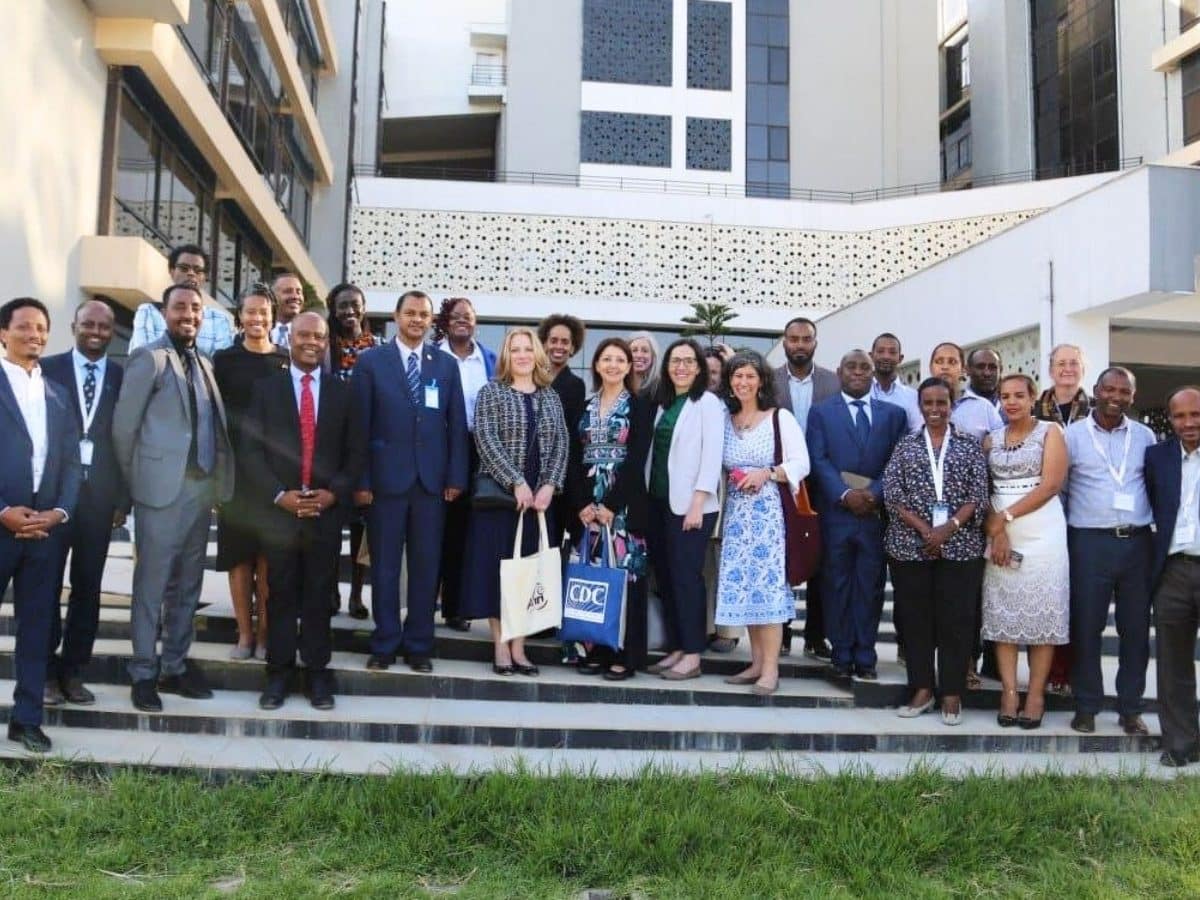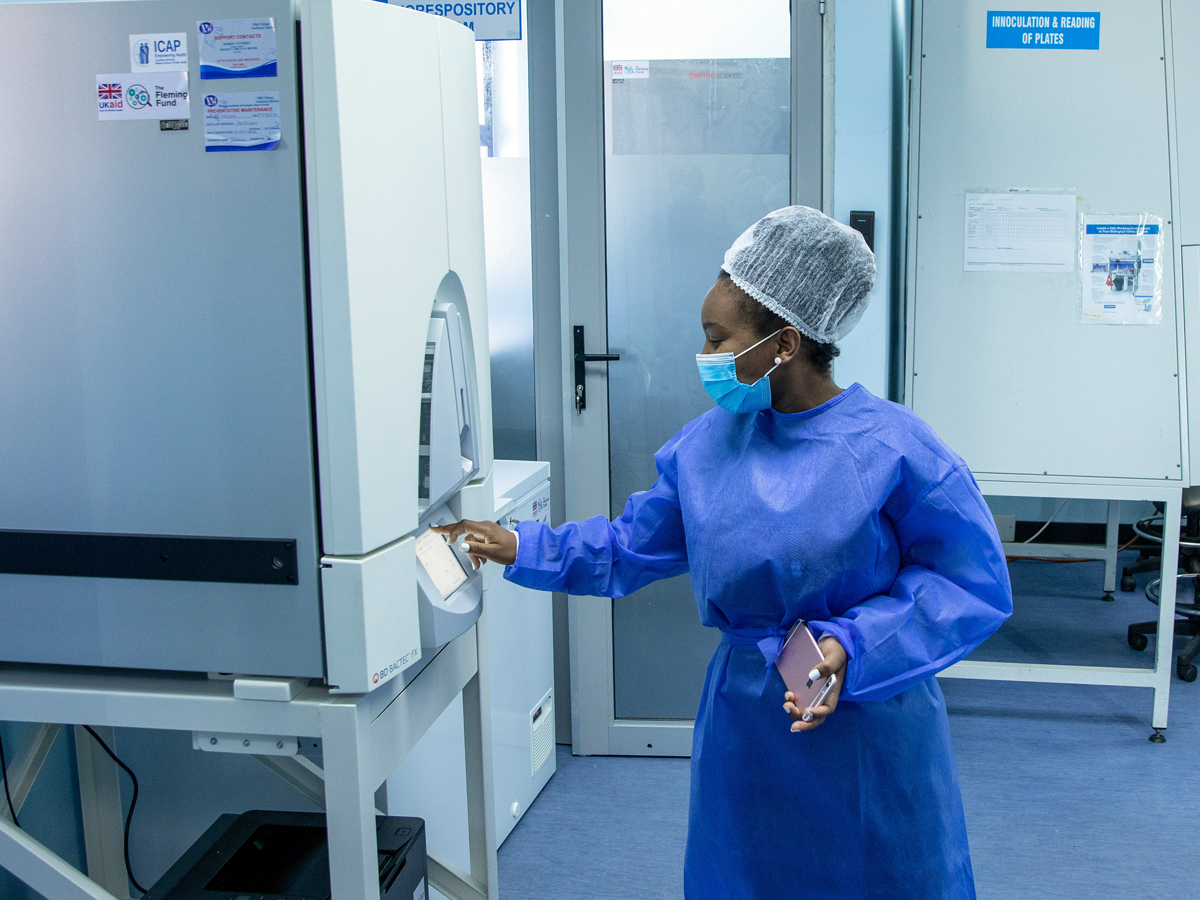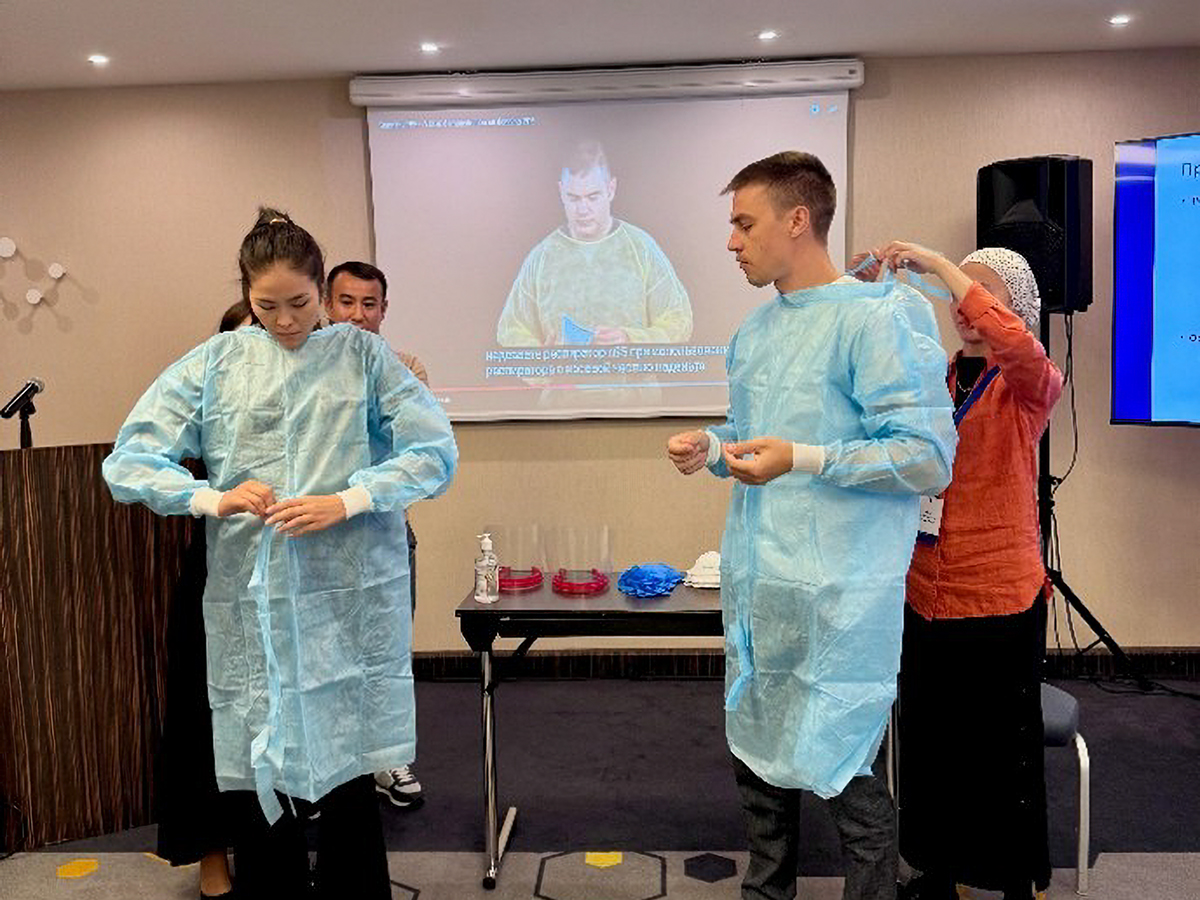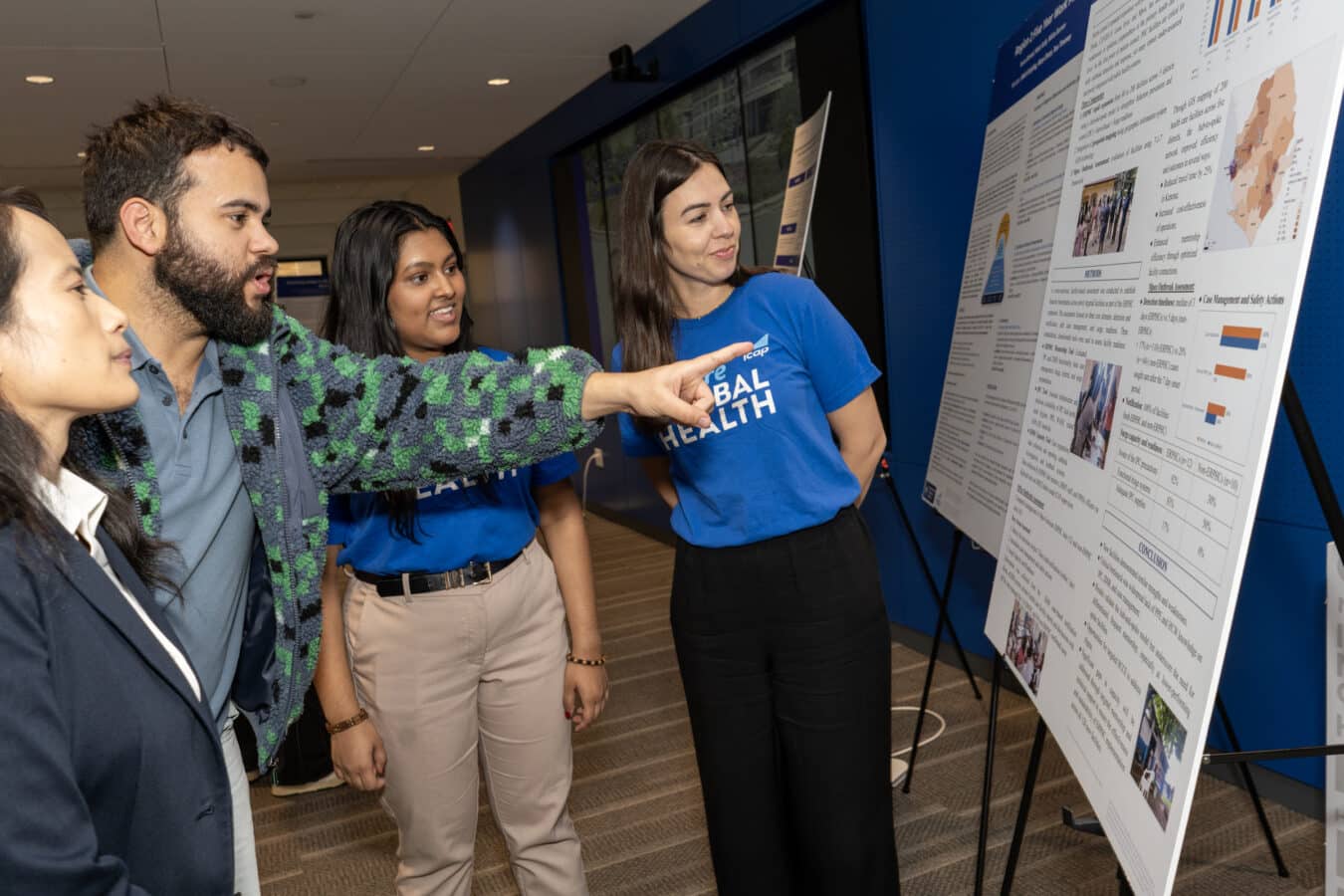In March 2024, ICAP in Ethiopia presented key findings from its antimalarial drug efficacy clinical trials to the U.S. Department of Health and Human Services (HHS).
Organized by the U.S. Agency for International Development (USAID) in Ethiopia and the Armauer Hansen Research Institute (AHRI), the event aimed to showcase some of the outcomes and impact of research projects funded by U.S. agencies and implemented by diverse partners, across topics including malaria, tuberculosis, vaccines clinical trials, and capacity building. The visit from the delegation was also an opportunity for organizations working in these areas to explore potential collaboration in research and capacity development to address critical public health challenges in Ethiopia.
Nearly 60 percent of Ethiopia’s population lives in areas at risk of malaria. ICAP has devoted 16 years to actively working to improve malaria diagnosis and treatment across Ethiopia, and since 2018, has operated the Malaria Diagnosis and Treatment Activity (MDTA), an initiative funded by USAID through the U.S. President’s Malaria Initiative. MDTA collaborates with AHRI and the Ethiopian Public Health Institute (EPHI) on antimalarial drug efficacy trials, assessing the efficacy of antimalarial drugs and treatment regimens to provide program and policy inputs to the Ministry of Health and enhance its malaria prevention, control, and elimination efforts.
At the event, ICAP showcased poster presentations highlighting findings from the clinical trials, which have been conducted since 2009. Bereket Hailegiorgis, MD, MSc, principal investigator and MDTA chief of party, outlined many of the clinical trial policy implications.

While 60 percent of Ethiopia’s population is at risk of contracting malaria, the successful scale-up of diagnosis and treatment initiatives can significantly reduce widespread malaria epidemics.
For example, a trial confirming the safety of and five-fold reduction in recurrence of Plasmodium vivax (P. vivax) – one of the most common species of malaria parasites – administered with the drug Primaquine (PQ), led to introduction of a PQ-based radical cure treatment regimen for P. vivax. Another study that showed high efficacy of the antimalarial drug Dihydroartemisnin Piperaquine resulted in new policy and guidelines in Ethiopia to add the drug as a second line treatment of Plasmodium falciparum – another one of the most common species of malaria parasites – and P. vivax.
“We’re incredibly pleased to be able to demonstrate the results of our trials to the U.S. Department of Health and Human Services delegation, as the opportunity helps us relay the importance of continuously monitoring the efficacy of anti-malaria treatments for communities across our country,” said Hailegiorgis. “As ICAP continues to support national malaria programs by strengthening malaria diagnosis and treatment, monitoring the emergence of drug resistance and selection of effective treatment regimens is an essential complement to that work and to our efforts in eliminating malaria across the country.”
The HHS delegation was comprised of Andrea Palm, deputy secretary of HHS; Angela Botticella, chief of staff for the office of the deputy secretary of HSS; Loyce Pace, assistant secretary for the Office of Global Affairs (OGA); Caya Lewis, chief advisor for policy and strategy for the OGA; Elana Clarke, acting director of Africa and the Middle East for the OGA; Mandy Cohen, director and CDC administrator for the Agency for Toxic Substances and Disease Registry; Andi Lipstein Fristedt, deputy director of policy for the CDC; Kayla Laserson, director of the CDC Global Health Center (GHC); and Pamela Dougherty, GHC chief of staff and senior advisor.
About ICAP
A major global health organization that has been improving public health in countries around the world for two decades, ICAP works to transform the health of populations through innovation, science, and global collaboration. Based at Columbia Mailman School of Public Health, ICAP has projects in more than 40 countries, working side-by-side with ministries of health and local governmental, non-governmental, academic, and community partners to confront some of the world’s greatest health challenges. Through evidence-informed programs, meaningful research, tailored technical assistance, effective training and education programs, and rigorous surveillance to measure and evaluate the impact of public health interventions, ICAP aims to realize a global vision of healthy people, empowered communities, and thriving societies. Online at icap.columbia.edu








